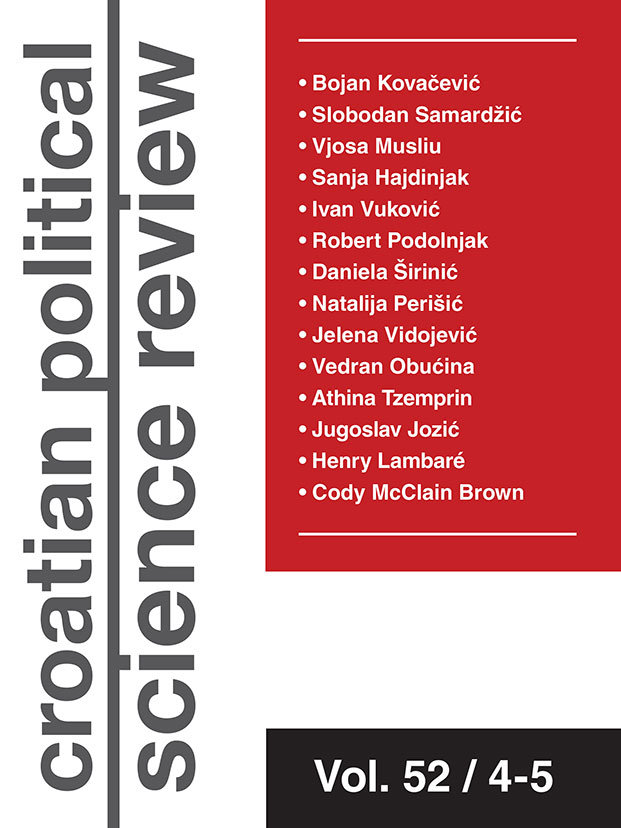Emergent Invisible Power in EU Federalism
Emergent Invisible Power in EU Federalism
Author(s): Bojan Kovačević, Slobodan SamardzicSubject(s): Constitutional Law, Public Law, Government/Political systems, EU-Approach / EU-Accession / EU-Development, Fiscal Politics / Budgeting, Sociology of Politics
Published by: Fakultet političkih znanosti u Zagrebu
Keywords: European Union; Invisible Power; Federalism; Crisis; Panopticon
Summary/Abstract: In contrast to modern federations, the federalization of the EU has taken place without a constitutional answer to the question of the system’s democratic legitimacy. The process of compound polity building under the shadow of the dilemma of the Union’s finalité politique can be described as “hidden federalism”. The major consequence of this process has been a gradual migration of decision-making from an intergovernmental toward a supra-governmental power-holder. On the one hand, due to an excessive Europeanization of governing tasks, national democratic institutions have lost the political autonomy necessary for shaping the relation between state and society, politics and the market, and individual and collective autonomy within member states. On the other hand, reforming the EU by creating democratically suspicious control mechanisms within its members’ budget policies has not substituted the absence of the EU’s governance autonomy to regulate politically sensitive fields such as fiscal, employment and social policies. With the escalation of the Eurozone crisis it has become evident that neither member states nor the EU have a sufficient level of autonomy to make policy choices related to the most sensitive issues of distributive justice. The implementation of the Fiscal Compact will decisively affect economic and social life in Europe; yet it is hardly possible to discern who should take credit or the blame for the nontransparent penalty mechanism embedded in this contract and aimed at regaining the Eurozone’s stability. In this new historical context, institutions of constitutional democracy, being present on the national and to an extent on the European level, have been deprived of their original purpose. Instead of making power visible and accountable, they have actually enlarged the scope of an unaccountable power by maintaining the illusion that citizens can still determine their collective destiny through the political process.
Journal: Politička Misao
- Issue Year: LII/2015
- Issue No: 04+05
- Page Range: 9-31
- Page Count: 22
- Language: English

